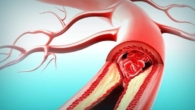
There is no link between coffee and breast cancer
0
In the course of the study, American scientists found no association between caffeine use and invasive breast cancer. The existence of this connection has been suggested before.
Researchers from the University of Buffalo followed nearly 80,000 postmenopausal women to determine whether the level of caffeine in the diet affects the development of invasive breast cancer.
A person receives caffeine not only from coffee, but also from tea and some other drinks. The average age of menopause in the U.S. is 51, so these women were in the 50 to 64 age group with the highest caffeine intake.
In addition, the average age at which breast tumors are diagnosed in the U.S. is 62. . Such a coincidence of the age of menopause, diagnosis of cancer and the highest possible consumption of caffeine made it possible to obtain the most objective data on how this component affects the risk of breast tumors.
The results of the study clearly indicate that the risk of cancer breast size is not affected by the amount of caffeine in the diet.
85% of Americans consume at least one caffeinated beverage daily. Therefore, it is extremely important to know how this ingredient affects the body, especially when it comes to detecting breast tumors, which are the most common type of cancer and the second leading cause of cancer death in the United States among women.









Leave a Reply